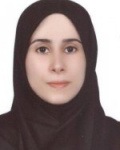| Authors | M. Soltani, B. Asgarian, V. Jafari Deligani |
|---|---|
| Journal | Journal of Structural and Construction Engineering |
| Paper Type | Full Paper |
| Published At | 2019 |
| Journal Grade | Scientific - research |
| Journal Type | Typographic |
| Journal Country | Iran, Islamic Republic Of |
| Journal Index | ISC |
Abstract
In this paper, the critical buckling loads and natural frequencies of axially functionally graded non-prismatic Timoshenko beam with different boundary conditions are acquired using the Finite Difference Method (FDM). In the recent years, the use of functionally graded materials (FGMs) has been increasing in different mechanical components due to their conspicuous characteristics such as high strength, thermal resistance and optimal distribution of weight. The designer can thus produce structures with favorable stability and manage the distribution of material properties. In this study, the material properties of non-prismatic Timoshenko beams such as Young’s modulus of elasticity and density of material are described by a power-law formulation along the beam axis. Contemplating elastic behavior, the system of equilibrium equations of non-uniform Timoshenko beam and the related boundary conditions are coupled in terms of the vertical displacement and the bending rotation of the cross-section. Afterwards, the system of second-order differential equations with variable coefficients and end conditions are discretized by finite difference formulations with second-order accuracy. Finally, the system of finite difference equations culminates in a set of simultaneous and linear equations and the critical buckling loads and natural frequencies are calculated by solving an eigenvalue problem of the obtained algebraic system. In order to demonstrate the accuracy and reliability of this approach to calculate elastic buckling loads and natural frequencies of functionally graded (FG) Timoshenko beams, one comprehensive example including axially non-homogeneous and homogeneous members with non-uniform cross-section is expressed. The numerical results in clamped-clamped, simply supported and fixed-free boundary conditions are accomplished. Moreover, the effect of various parameters such as volume fraction index, end conditions and the section variation on the elastic buckling and free vibration behavior of AFG Timoshenko beam are investigated in detail.
